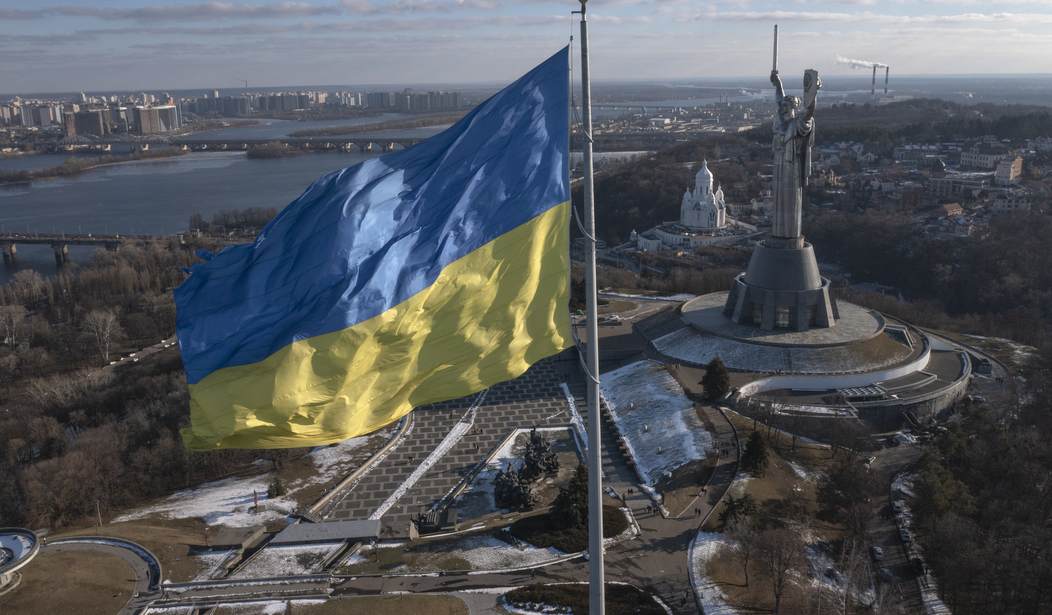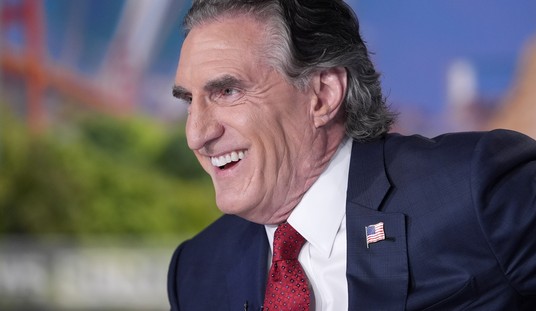Did someone prank Fox reporter Jacqui Heinrich with this? Or has the righteous impulse to come to Ukraine’s rescue driven congressional hawks to sci-fi scenarios for how to intervene without really intervening?
Separately, some members of congress are beginning to advocate for a non-kinetic no-fly zone – something to the effect of using electromagnetic pulse, sonar, and cyber to keep Russian jets on the ground so they can never take off. Unclear how much support this will end up getting
— Jacqui Heinrich (@JacquiHeinrich) March 7, 2022
We have no military assets in Ukraine for the sensible reason that direct conflict on the battlefield between Americans and Russians would risk World War III. If I understand what Heinrich’s sources are suggesting, they’re willing to redefine “direct military conflict” to mean “bombs and bullets only.” If we start taking out Russian jets but don’t use any lethal implements to do so, the theory goes, Putin will tolerate that just fine.
How many lives are we prepared to gamble on that proposition? A hundred million? Do I hear 200 million?
The reference to an electromagnetic pulse is particularly hair-raising. An EMP is an atmospheric burst of energy that fries the electrical circuits of everything on the ground within a certain range. At a high enough altitude with a big enough burst, one could disable an entire country’s unprotected electrical networks and electronic devices. It’s not directly lethal, but imagine the chaos if all electronics suddenly stopped working with no prospect of near-term restoration. How does a population behave when it’s thrust back to pre-industrial living in an instant?
This is the weapon hawks want to mainstream for the sake of disabling some Russian jets, never mind the collateral damage it might do to Ukrainian infrastructure?
The “non-kinetic” version isn’t the only fanciful vision of a no-fly zone kicking around Washington today. A group of foreign-policy experts has issued a statement calling for a “limited” no-fly zone over Ukraine:
We, the undersigned, urge the Biden administration, together with NATO allies, to impose a limited No-Fly Zone over Ukraine starting with protection for humanitarian corridors that were agreed upon in talks between Russian and Ukrainian officials on Thursday. NATO leaders should convey to Russian officials that they do not seek direct confrontation with Russian forces, but they must also make clear that they will not countenance Russian attacks on civilian areas…
President Biden and NATO Secretary General Stoltenberg have stated that neither the United States nor NATO will engage Russian forces on the ground in Ukraine. What we seek is the deployment of American and NATO aircraft not in search of confrontation with Russia but to avert and deter Russian bombardment that would result in massive loss of Ukrainian lives. This is in addition to the request from Ukrainian leaders for A-10 and MIG-29 aircraft to help Ukrainians defend themselves, which we also strongly support.
There’s no such thing as a “limited” no-fly zone restricted to humanitarian corridors, Jim Geraghty notes correctly. You’re either in the air over Ukraine and prepared to use deadly force against the Russian military or you aren’t. No one can seriously believe that U.S. and Russian jets would be able to avoid firing at each other for long given the difficulty in getting the two sides to agree to which airspace is part of a “humanitarian corridor” and which isn’t. Even if the two could agree, the risk of one side or the other miscalculating in an incident is enormous.
No matter how you slice it, the U.S. Air Force would be in a position of dictating to Russia where it can and can’t operate in a country which Putin claims is rightly part of Russia itself. That won’t fly, no pun intended.
The latest threat assessment from the Office of the Director of National Intelligence finds that “Russia does not want a direct conflict with U.S. forces… Russia seeks an accommodation with the United States on mutual noninterference in both countries’ domestic affairs and U.S. recognition of Russia’s claimed sphere of influence over much of the former Soviet Union.” Given the performance of the Russian military on the ground in Ukraine, if Putin is remotely in touch with reality at this point he’ll go to great lengths to avoid a shooting war with NATO. But not to any lengths; at a certain point, weakness is provocative. And that’s where things turn dangerous:
DNI HAINES: We assess Putin feels aggrieved. The West does not give him proper deference and perceives this is a war he cannot afford to lose. But what he might be willing to accept as a victory may change over time, given the significant costs he is incurring.
— Jacqui Heinrich (@JacquiHeinrich) March 8, 2022
Implementing any sort of no-fly zone over Ukraine would amount to daring Putin to do something about it at a moment when Russia is, and looks, weaker than it has in ages. How lucky do you feel about his response?
Don’t be too hard on the hawks who favor the idea, though. They’re wrong and they should lose this debate decisively, but they’re also human beings who understandably find conditions in Ukraine unbearable. Proceed with caution in watching this clip:
Barbaric bombardment of residential area in Sumy last night. 18 dead civilians. Many children. #PutinWarCrimes #РоссияСмотри #CloseTheSkyUkraine #CrimesAgainstHumanity #PutinsKrieg #StandWithUkraine️ pic.twitter.com/VKImmbCPQb
— olexander scherba🇺🇦 (@olex_scherba) March 8, 2022
It’s not going to stop. It’ll probably get worse. Westerners who sympathize with the Ukrainian people as they’re brutalized rightly feel despair at their own powerlessness, knowing that NATO has the firepower to stop this. And in a non-nuclear world, given the apparent weakness of Russia’s military, there’d be a strong argument to do so. But in a world where civilization itself is a hostage to the whims of an expansionist nuclear power, the top priority must remain avoiding a widening of the war. Give Ukraine all means of conventional aid to defend itself but avoid at all costs anything that might plausibly lead to nuclear brinksmanship.
Exit question: Would a “limited” no-fly zone even achieve much? What would happen once Russia declared that there’ll be no more “humanitarian corridors” and that all Ukrainian population centers are targets?
As I keep trying to explain, NFZ in UKR isn't going to help very much unless it's a "Libya NFZ," where you fly so you can destroy things on the ground that are hurting civilians.
If that's what people want, they should say so, instead of "partial" NFZ and other nonsense. https://t.co/tfIoUXdtH7
— Tom Nichols (@RadioFreeTom) March 8, 2022








Join the conversation as a VIP Member